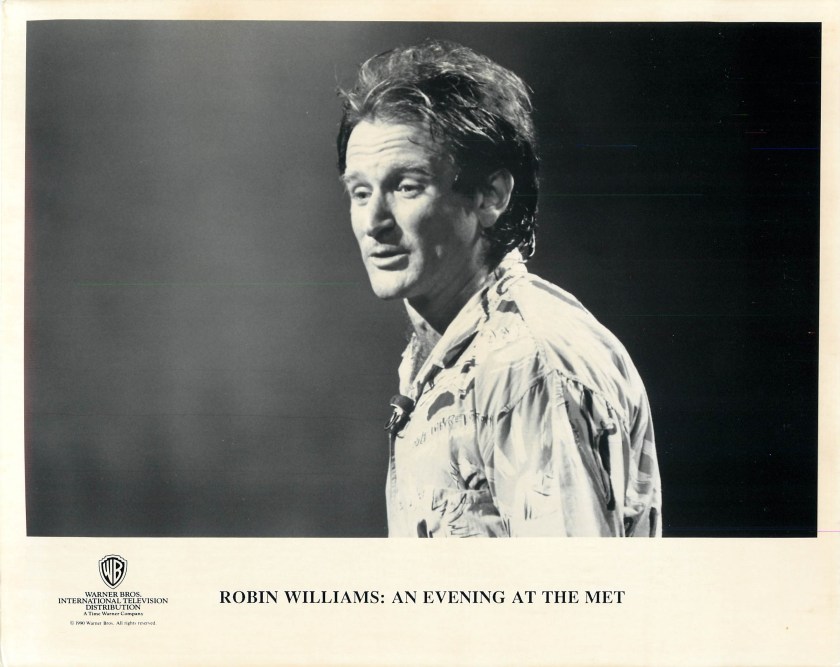 Robin Williams died almost seven years ago, on August 11, 2014. I wrote about him at the time, and I was surprised by how affected I was by his passing.
Robin Williams died almost seven years ago, on August 11, 2014. I wrote about him at the time, and I was surprised by how affected I was by his passing.
Mark Evanier wrote at length about Robin, both before and after his death. For instance, he found remembrances from Penny Marshall, who directed him in Awakenings (1990), and fellow comedian Lewis Black, among others.
In 2018, Vanity Fair excerpted New York Times culture reporter Dave Itzkoff’s then-new biography, Robin. From the article intro: “He was still harboring guilt about his divorce from Marsha Garces, his second wife, and mother of two of his children, and adjusting to life with his new wife, Susan Schneider, whom he married in 2011.
“Meanwhile, Williams was also reeling from a cataclysmic diagnosis: in May 2014, he had been told that he had Parkinson’s disease, news that stunned and overwhelmed the once-nimble comedian. Even more crushing than this is the possibility that Williams was misdiagnosed; an autopsy would later reveal that he actually had Lewy body dementia, an aggressive and incurable brain disorder that has an associated risk of suicide.”
Decline
You should read the piece, which attempts to discern why the performer kept working in less-than-stellar films. His last TV series, The Crazy Ones (2013) didn’t connect with audiences. And “starting in October 2013, Robin began to experience a series of physical ailments, varying in their severity and seemingly unconnected to one another.”
Also, in the September 27, 2016 issue of Neurology magazine, his widow Susan Schneider Williams wrote about “The terrorist inside my husband’s brain.”
But I just subscribed to Robin Williams’ YouTube channel because I need to remember the joy that he was having, something he had to share with others. And here’s a nice recollection by Dan Hernandez, a young writer on The Crazy Ones. Plus, 12 facts about the performer.



